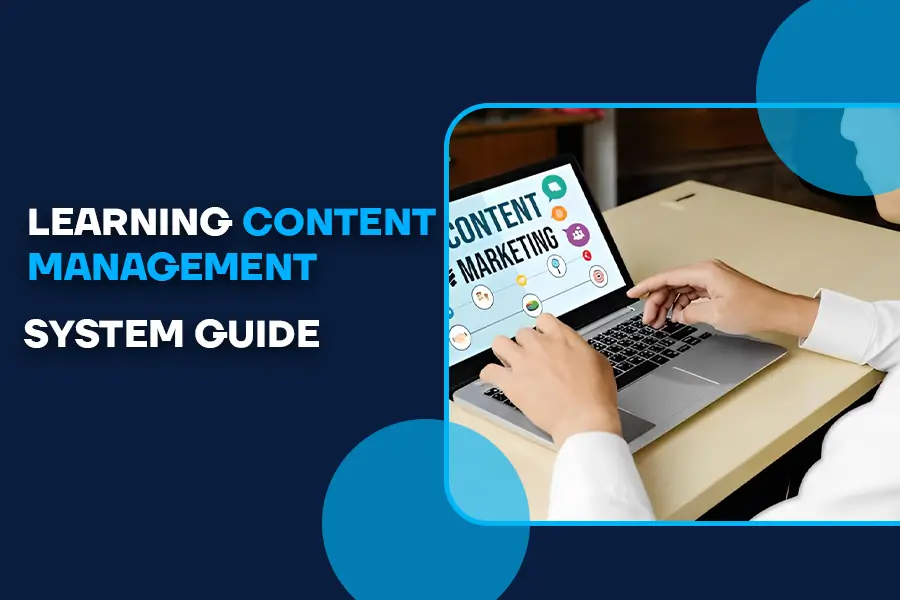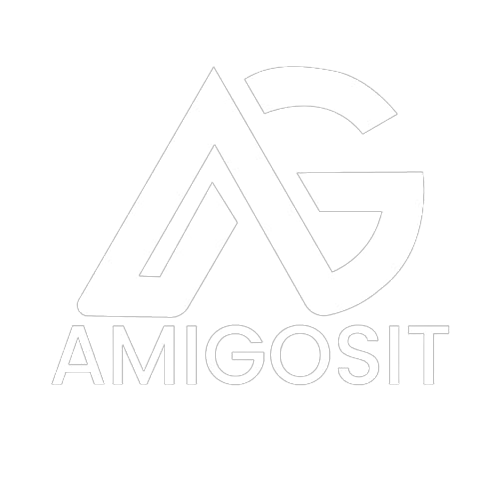
Learning Content Management Systems Guide of 2025

In today’s rapidly evolving digital environment, businesses must provide training that’s engaging, easy to access, and consistent across teams. Enter the learning content management system (LCMS), a powerful platform that centralizes and streamlines your training efforts.
At AmigosIT Systems, we help marketing agencies and enterprises adopt smart solutions. From real-world experience, a Learning Content Management System (LCMS) significantly improves the way organizations develop, organize, and distribute their learning materials.
In this guide, we will explain exactly what a Learning Content Management System is, how it works, how it compares to an LMS, and most importantly, how to choose one that actually fits your needs.
Let’s clear up the confusion and help you make a smarter decision.
What Is a Learning Content Management System?
A learning content management system is more than just a content library. It’s a dynamic, all-in-one platform that combines the strengths of a content management system (CMS) with those of a learning management system (LMS). Think of it as the engine behind scalable training — for both your internal teams and clients.
Unlike a traditional web content management system, an LCMS is designed specifically for eLearning, making it perfect for digital marketing training, onboarding modules, and client education.
Important Features of a Learning Content Management System
- Content Authoring Tools: With built-in content editors, you can create interactive lessons, quizzes, and videos, no third-party software required.
- Centralized Content Repository: Store everything in one place, from micro learning clips to full courses. Not additional distributed files or version confusion.
- Multi-Channel Delivery: LCMS platforms integrate with LMSs or standalone websites, pushing content to learners wherever they are.
- Collaboration & Workflow: Instructional designers, SMEs, and marketing teams can work together, in real-time , within the platform.
- Version Control & Easy Updates: Update once, and it syncs everywhere. Perfect for fast-moving industries like marketing where information changes frequently.
- Tracking & Reporting: Know who’s learning what. Use analytics to improve both your content and learner outcomes.
Why Marketers Love LCMS Platforms
As a marketing services provider, we’ve seen how learning content management systems drive results. When launching new digital campaigns, onboarding clients, or training staff, consistency is key. An LCMS makes this seamless.
Benefits for Marketing Teams
- Efficient Content Reuse
Repurpose content blocks across multiple courses or client projects. - Improved Learning Consistency
Maintain brand tone and quality in every training module. - Enhanced Engagement
By collaborative media and gamified learning, users stay engaged longer. - Time Savings
Cut production and revision time by 50% or more. - Scalable for Growth
Whether you’re a startup or a global agency, LCMS tools grow with you.
Top 12 Learning Content Management Systems in 2025
Here’s a curated list from AmigosIT Systems, based on real feedback and user experience:
- Adobe Captivate Prime – Ideal for advanced analytics and mobile delivery.
- Lectora – Great for eLearning professionals seeking deep customization.
- SAP Litmus – Trusted by enterprises for overall training scalability.
- Xylem – Powerful for multipart content reuse and tracking.
- Kenexa LCMS – IBM-supported system identified for robust integrations.
- ISpring Suite Max – Easy PowerPoint-based authoring for quick content creation.
- Elucidate – Cloud-based and collaborative, perfect for agencies.
- Gomo Learning – Mobile-first and SCORM compliant.
- Coassemble – Combines LMS and LCMS with a simple UI.
- Learn Worlds – Great for selling learning content online.
- Bridge – Supports employee development with built-in coaching.
- Docebo – AI-powered recommendations and multilingual capabilities.
These content management system platforms offer versatility and value across industries — but particularly shine when used for marketing education and digital product training.
LCMS vs CMS vs LMS, What’s the Difference?
System Type | Purpose | Best For |
LCMS (Learning Content Management System) | Content creation + delivery | Training teams and clients |
LMS (Learning Management System) | Delivering & tracking learning | Compliance & certification |
CMS (Content Management System) | Managing web content | Websites & blogs |
Some examples of content management system platforms include WordPress, Drupal, and Joomla, but these aren’t built specifically for learning. For structured education, an LCMS is the better fit.
First-Hand Insight from AmigosIT Systems
In 2024, we on boarded a client struggling with scattered learning materials across Google Drive and Drop box. We implemented Xylem as their LCMS. Within 30 days, they consolidated all content, launched branded courses, and reduced training time by 40%.
The transformation was tangible, better onboarding, improved retention, and happier clients.
Final Thoughts
A learning content management system is more than a backend tool, it’s a growth engine. For digital marketers, agencies, and educators, it streamlines how you build, scale, and improve your training.
At AmigosIT Systems, we help businesses leverage LCMS tools that match their goals. Whether you’re transitioning from a basic CMS content management system like WordPress, or need an enterprise content management system to support global training, we’ve got your back.
- Book a demo with AmigosIT Systems
With years of experience, our digital marketers smart, data-driven strategies and creative solutions, grounded in a deep understanding of shifting online trends. We focus on making your brand feel authentic and memorable in today’s fast-paced digital world.
Let's Talk
(+92) 310 799 0605
info@amigositsystems.com
2nd Floor Ismail's Garments Near Town Hall 64200
Frequently Asked Questions (FAQs)
A learning content management system is used to create, establish, and distribute training materials. Unlike a CMS or LMS, it focuses on dynamic learning content development and real-time collaboration.
WordPress content management system is powerful, it’s primarily a CMS. With plugins like LearnDash, it can mimic LCMS features, but it’s not built for structured learning delivery.
A CMS manages general website content; an LCMS manages learning-specific content with tracking, collaboration, and delivery built-in.
Platforms like Elucidat, iSpring, and Coassemble are marketer-friendly with simple interfaces and strong collaboration tools.
Drupal is a flexible CMS, not a full LCMS. However, with modules, it can support educational content but lacks native learning delivery tools.
It depends. If you’re primarily delivering pre-built courses, an LMS is enough. But if you’re actively creating, updating, and personalizing content, an LCMS gives you more control and efficiency.



